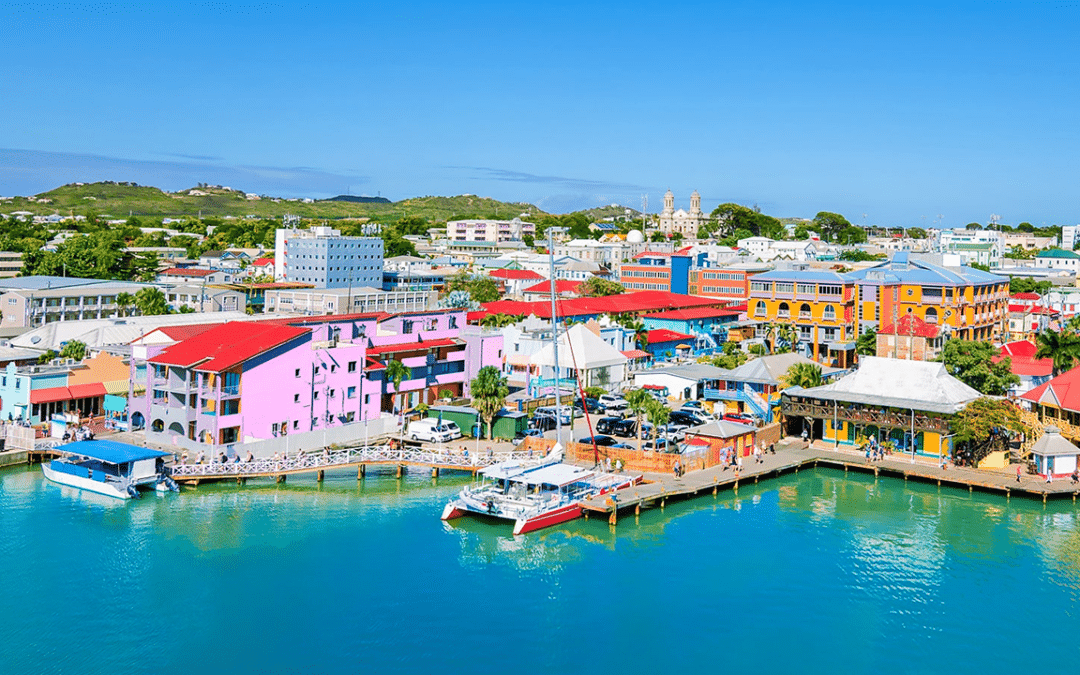There is growing apprehension surrounding the Caribbean Citizenship by Investment (CBI) programs, with widespread speculation about the possibility of these programs coming to an end. There are also concerns about facing restrictions on visa-free access to the much-sought-after Schengen area, especially since the European Union (EU), in the wake of the Russian war, raised security about the trade in passports and became adamant about mitigating the risks associated with these programs.
However, despite these pervasive concerns and contrary to rumors, citizenship by investment programs is evolving and expanding. Caribbean countries are actively broadening their scope by establishing partnerships with additional countries, thereby enhancing the portfolio of nations offering visa-free access. They have also taken several steps to improve the legitimacy and integrity of their programs. The continuous development of these programs suggests a dynamic and resilient landscape, arguing the prevailing narrative of their imminent demise or loss of privileges.
In this article, we will provide a thorough analysis of how Caribbean CBI programs are expanding and the proactive steps they are taking to ensure compliance and address concerns expressed by EU authorities.
Disbanding CIPs “Not an Option”
The Caribbean Five, consisting of Antigua and Barbuda, Dominica, Grenada, St. Kitts and Nevis, and St. Lucia, are always determined not to give up their CBI programs in the face of pressure from Europe and the US. Antigua and Barbuda’s Foreign Minister, E.P. Chet Greene, said previously: “We won’t pre-empt losing this fight. We’ll fight it to the bitter end. We are strong in our views because we operate a program that is above and beyond reproach.” All the Caribbean nations consider that disbanding their programs is not an option at the moment. This is because CBI programs are vital pillars of these nations’ GDPs, acting as an economic leverage that aids growth through unencumbered funds and foreign direct investments (FDIs). CIPs not only provide an influx of cash but also affect the social fabric of nations through a knock-on effect.
Improved passport rankings
The five Caribbean countries are striving to maintain their passport rankings and enhance the portfolio of nations offering visa-free access. In 2024, St. Kitts and Nevis was ranked 25th among global passports, improving one place compared to 2023 and giving its holders visa-free access to 157 destinations. Antigua & Barbuda passport ranked 27th, allowing access to 153 countries, compared to 31st in 2023, with visa free access to 150 destinations. Saint Lucia maintained the same ranking, at 32nd providing access to 148 countries. Grenada was ranked 32nd in 2024, enabling access to 148 countries, compared to 34th in 2023, with vis-free access to 148 countries. Dominica’s passport ranking improved from 35th in 2023 to 34th this year, offering access to 144 countries. These higher passport rankings reflect the global mobility and diplomatic strength of these nations and provide a plethora of alternatives for those seeking flexibility and worldwide mobility.

Improving legitimacy and integrity
Acknowledging the necessity of addressing concerns expressed by a range of stakeholders, such as international organizations and EU authorities, Caribbean nations have taken a number of steps to improve the legitimacy and integrity of their CBI initiatives. Below are some important actions they are taking:
-
Strengthening due diligence:
The Caribbean countries have increased their efforts to guarantee that their CBI initiatives benefit only worthy applicants. They are doing extensive background checks, tightening up screening procedures, and improving due diligence protocols. This process also includes verifying the sources of the applicants’ finances in an effort to reduce the possibility of money laundering and other illegal actions.
-
Reforms in Regulations:
Aware of the possibility of policy gaps, Caribbean nations are continuously updating and fortifying the legal frameworks governing CBI initiatives. This endeavor entails the introduction of fresh laws aimed at enhancing transparency and establishing robust oversight mechanisms. The ultimate objective is to guarantee compliance with global norms, thus augmenting the programs’ global acceptance and reputation.
-
Information sharing and collaboration:
Understanding the value of collaboration, Caribbean nations are actively exchanging information and working together with other EU members as well as international organizations. The purpose of this step is to resolve issues with security, transparency, and the credibility of CBI programs. These countries are attempting to build confidence among all stakeholders while strengthening the integrity of their programs and fostering trust among all stakeholders.
Caribbean nations are showcasing their dedication to maintaining the highest standards in their CBI programs using these coordinated efforts. They are actively trying to safeguard their nationals’ access to Schengen in the future since they are aware of the risks.

Win-win situation
It’s worth noting that Schengen access isn’t solely beneficial for Caribbean CBI program participants but also provides significant advantages to Schengen Area countries. By attracting high-net-worth individuals and investors, Schengen countries can benefit from increased investment and economic growth. These individuals often contribute to the economy through real estate investments, business expansion, or other financial activities. Moreover, the integration of diverse cultures enriches the social fabric of the Schengen Area and fosters a more inclusive and tolerant society. This underscores the fact that maintaining Schengen access is a win-win situation for both Caribbean nations and Schengen countries, fostering global impact, economic expansion, and cross-cultural interaction.
The Caribbean citizenship by investment Programs will likely stand firm and resilient, despite all rumors resonating. They will not lose visa-free access to the Schengen area, given the present aggressive measures. However, future success will need constant attention to detail, flexibility, and a commitment to quality and openness.




